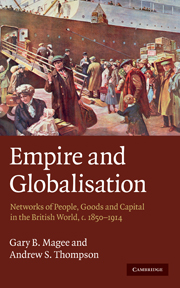Book contents
Introduction
Published online by Cambridge University Press: 05 June 2012
Summary
At the start of the third millennium, the times are very much a-changing; or at least there are many who would wish us to believe that this is so. ‘Globalisation’ is the word that has been coined to capture this sense of living in an age of transformation – one in which little can be taken for granted and no-one quite knows what the future might bring. ‘Globalisation’ trips off the tongues of journalists and politicians in a way it manifestly did not before, while university libraries now struggle to make space for the swathe of new studies of our globalised world and how it came to be so. Few disciplines in academia have been left untouched by globalisation's claims, or have remained immune to its conceptual allure. Readily translatable into French, Spanish, German and other European languages, ‘globalisation’ is perhaps the pre-eminent way of conceptualising contemporary change. A growing number of sceptics question its novelty, feel frustrated by its lack of specificity and are critical of its Eurocentricity. ‘A messy idea for an anxious world’ is the verdict of one recent commentator upon the concept. Yet there are many more champions of globalisation. Indeed, like the discourse of ‘evolutionism’ in the nineteenth century, globalisation has been readily appropriated for a variety of (often competing) causes. Talk of ‘globality’, ‘global society’, ‘global governance’, ‘global economy’, ‘global justice’, ‘global warming’, the ‘global war against terror’ and a ‘new global order’ is, for the moment, here to stay.
- Type
- Chapter
- Information
- Empire and GlobalisationNetworks of People, Goods and Capital in the British World, c.1850–1914, pp. 1 - 21Publisher: Cambridge University PressPrint publication year: 2010



